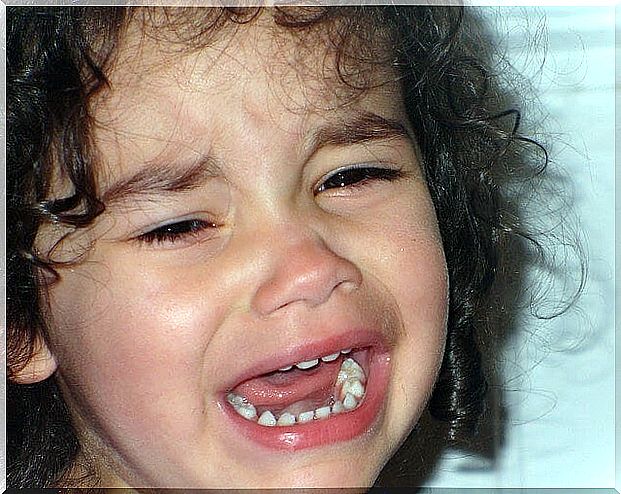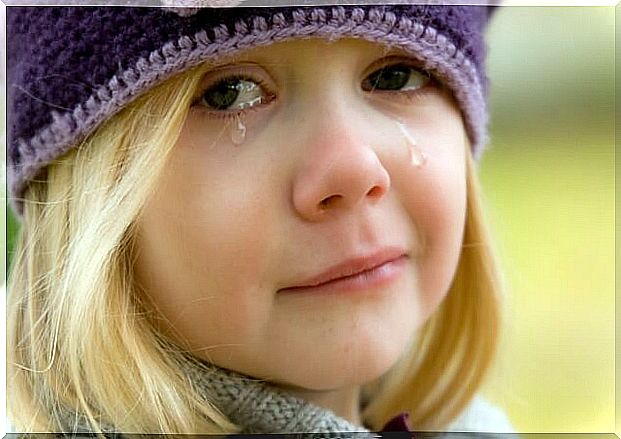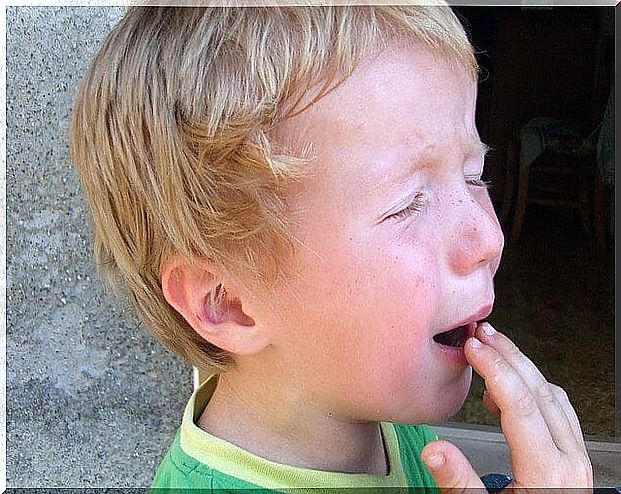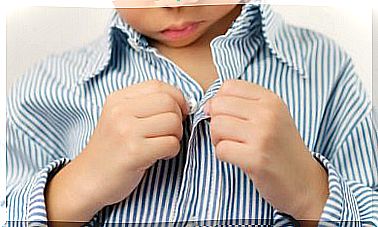The Importance Of Crying In Children

When children are babies, parents are used to crying because it is normal in development, babies have no other way to show their emotions or to make it clear to the adults around that they have some basic needs that must be taken care of.
It is very important that children can cry, but what about children who are older and cry too?
Children cry when they need to express emotions
That children cry is the most normal and natural thing they can do, what’s more … crying is something that should not be repressed and should be understood as the child’s need to show their emotions.
When a child is young, they still do not have the necessary skills to show their negative emotions (anger, sadness, anger…), and crying is a way of showing these emotions and thus channeling the feelings that these emotions generate.
But the little ones must learn that emotions must be understood so it is the role of the adult to make them understand what is happening to them, why they cry and to name the emotions. This will help children understand why they cry and better control their reactions and behaviors in the future.
But beware! Teaching children to understand their emotions does not mean that they should be forbidden to express them.

Crying is a healthy way to express strong emotions
We adults also use crying to express sadness, despair or anger. Tears are a way of releasing emotions, and it is well known that suppressing emotions is unhealthy and can lead to a host of psychological problems.
Parents may find it somewhat annoying to hear their children cry, the sound of crying breaks parents’ hearts. But you should keep in mind that, as with adults, crying is a healthy way to express and release strong emotions.
It is necessary to be careful in how you react to the crying of your children, it is necessary to act appropriately to ensure good social development and so that your self-esteem is not harmed.
Crying should not be prohibited at any age
Crying is a natural reaction of the human being to be able to express and channel emotions, which is why a child should never (never!) Be prohibited from crying. The adult must look for the reason for the crying and that solutions to their discomfort can be found between the adult and the child, always with respect, understanding and empathy.
It is a mistake to think that children should learn to control their emotions by learning not to cry, in no case is this a success. Children should cry either because they are two years old with a tantrum or because they are teenagers and having trouble with friends. Crying will help them understand that they are not well and that they must find a solution to their discomfort.

The cry of a child should never be ignored
If a child’s attempts to communicate sad or angry emotions are routinely ignored, he will think that his emotions are not important (and his self-esteem will be seriously affected) and he will also not be able to learn how to express his feelings in words.
When a child cries, he must receive an adequate and positive response from the adult so that he sees that his feelings are accepted. If your feelings are not accepted, ignored or even crying is punished, you will receive the message that sadness or anger are not accepted and that it does not matter in the way it is expressed (thus generating aggressive behavior by not knowing how to express emotions or knowing why those feelings occur).
It is impossible for a child to understand that the expression of sadness, anger or anger can be accepted if he thinks that the reference adults deny those emotions.
A child can only communicate if he is allowed to do so, so as he grows older he will realize that his feelings are valued and he will be able to trust his parents enough to be able to communicate and explain what happens to him.
All children do their best according to their age, experience and circumstances to be able to express and communicate in the best way that they know how. You need learning so it is unfair to punish a child for trying to communicate.









